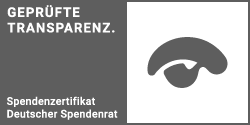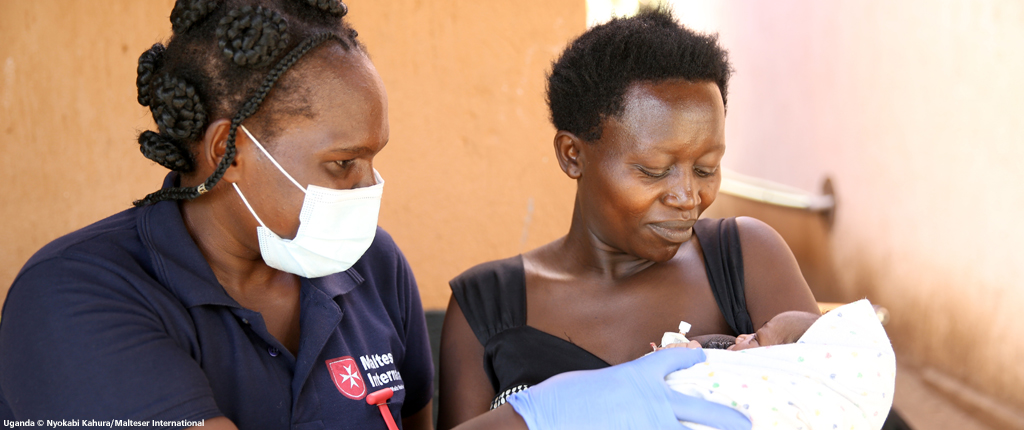
Program funding makes rapid relief possible – not only during the pandemic
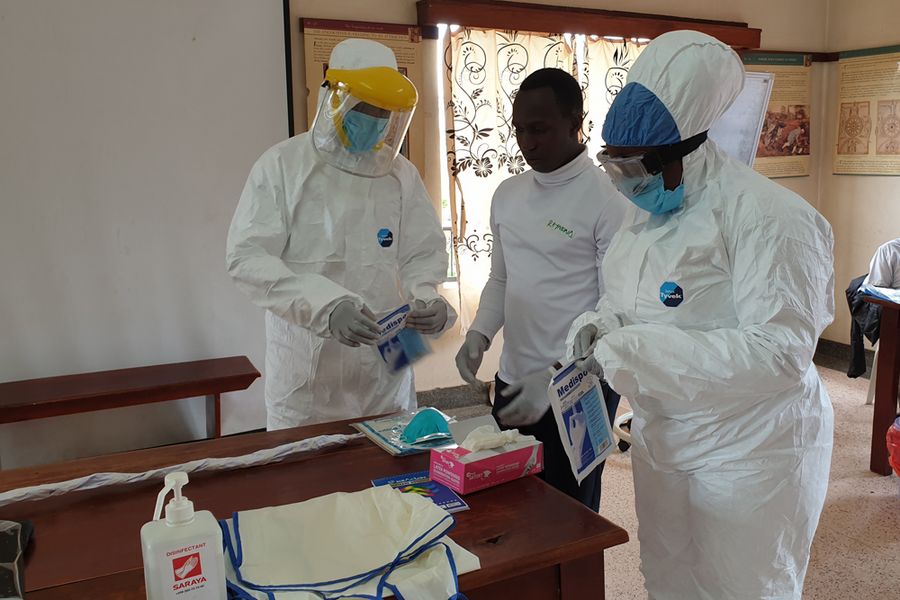
In the Africa region, we are committed to the long-term development of our partner countries’ societies and help to relieve people’s hardship in humanitarian crises. In order to improve our ability to respond, we are participating in a pilot project for a more flexible program design which is spearheaded by the German Federal Foreign Office. The strengths of this approach became visible during the coronavirus pandemic.
After the decision had been made, things started to happen fast: “When we realized in early March that the coronavirus pandemic was going to spread all over the world and that we would have to prepare for it in all our partner countries, we were able to initiate first measures to protect the population against COVID-19 the very next day in several countries,“ Roland Hansen, Head of the Regional Group Africa at Malteser International, reports.
In DR Congo, the highly specialized international-Congolese health team could build upon their experience from previous Ebola outbreaks and reactivate an existing isolation ward. In addition, we were able to reach more than a million people in the vast rural region through a comprehensive education program, including radio spots, educational work in the communities, and posters about the coronavirus.
“We were also able to provide our employees and partner organizations with protective materials very quickly. In Uganda, our partner, the Lubaga Hospital in the capital city of Kampala, could offer infection prevention trainings for employees, set up an isolation ward, equip two ambulances and the emergency room with medical ventilators and train the staff in using them right away,“ Dr. Solomon A. Razafindratandra, Regional Emergency Advisor for the Africa regional program, reports.
Planning certainty, agile project management, and less administration
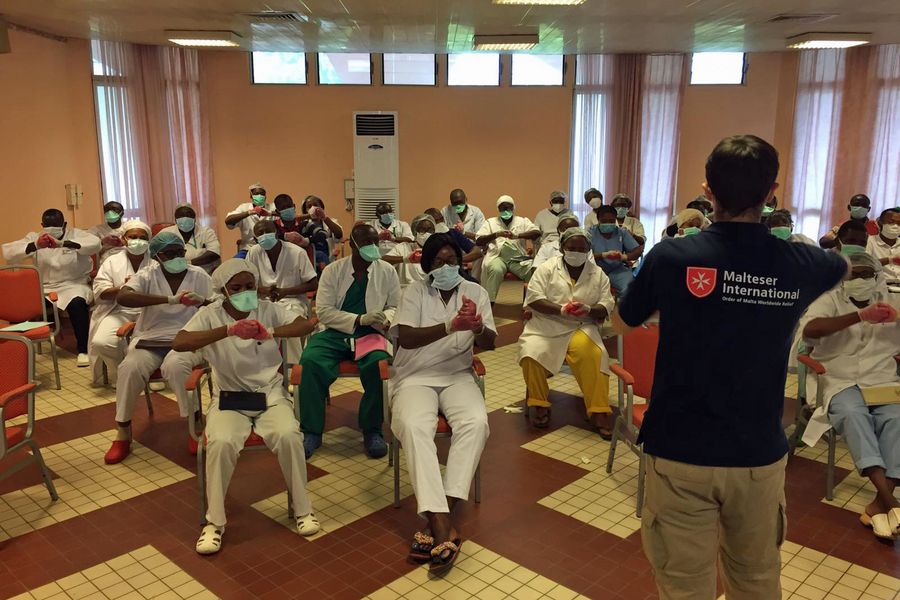
One of the reasons why we were able to help so quickly: since 2018, Malteser International has been developing a pilot project together with the German Federal Foreign Office to test a new format of program-based project funding for more planning certainty, flexibility, and a better ability to respond in humanitarian aid.
The idea behind the new funding instrument: in order to respond more rapidly and agilely to crises arising on short notice, the program’s financial budget is deliberately flexible with regard to the application of funds. This way, funds may be spent within a defined region and are not – as used to be common practice – bound to a project or location. In the case of a crisis, the pilot program allows for funds to be reallocated or appropriated quickly and without the need for time-consuming coordination or application processes between partners. Regular meetings with employees in the Foreign Office ensure the necessary exchange of information and the overall coordination.
This way, the emergency relief effort of our Emergency Medical Teams (EMT) in Cameroon, which supported local health institutions in containing the pandemic in the summer of 2020 on behalf of the World Health Organization (WHO), became possible after only a brief coordination process. A lot of red tape could be avoided; according to an external evaluation, a total of more than 50 contract amendments became superfluous in the course of the two-year term of the pilot project, 10 of which were related to the pandemic alone. At the same time, the aid’s predictability improved significantly. Another advantage: due to the program’s approach, quality instruments can be trained regionally and the exchange of experience and good practice can be systematically incorporated into the individual project measures.
Quick and customized aid in the region’s major crises
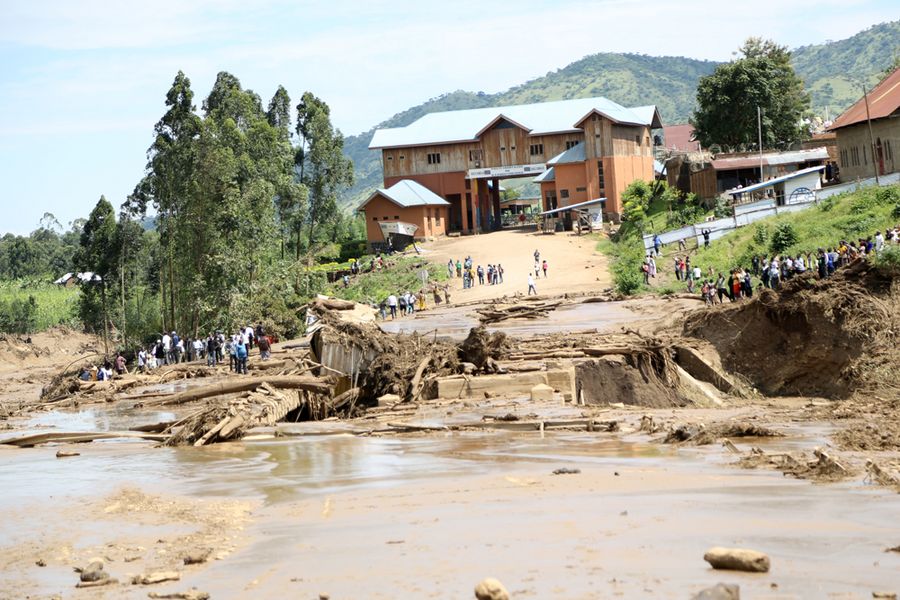
The pilot program’s modified assignment framework also constitutes a fundamental shift in funding from the project to the program level. Transnational and sectoral points of focus were defined, replacing the traditional project conception, which was limited to one country and specific sectors. In keeping with its overall strategy, Malteser International is committed to the areas of health, food security as well as water, sanitation, and hygiene (WASH). The pilot program covers all of Malteser International’s project countries in the region – Nigeria, Cameroon, DR Congo, Uganda, Burundi, Tanzania, South Sudan as well as Kenya and southern Ethiopia –, and after a first test phase it has already been extended into the year 2023.
From Malteser International’s point of view, the concept has proven to be very successful so far: “The outbreak of the coronavirus pandemic is just one example of how the pilot program has made agile help possible. In the case of the devastating locust plague in the East African countries, the renewed Ebola outbreak in DR Congo and especially the severe floods in Uganda, we could thus provide relief much faster and better prepared,“ Dr. Razafindratandra reports.
After unusually strong rainfall in May 2020, western Uganda experienced disastrous flooding. The Kasese district was hit particularly hard: tens of thousands of people lost their homes; schools, bridges, and hospitals were destroyed. Thanks to the flexibility of the new approach, our partner organizations were able to send eight ambulances into the crisis region right away to provide medical help to the people. In addition, an emergency team secured water supplies in 26 camps for people who had lost their homes in the flood.
Learning from epidemics: focus on one-health approach
“It is a great advantage that we can build our emergency aid on existing development projects. Our partners and expert teams are very well informed about the needs in their project regions, and we now have a better tool to be able to react more quickly in newly developing situations. That way, we overall improve the transitions in our relief efforts between crisis-related humanitarian support and long-term development cooperation,“ Hansen says.
In the future, Malteser International will particularly focus on the approach of “one health“ to respond to diseases like Ebola or COVID-19 that were transmitted by animals. “We need to think even more holistically and take environmental and animal health into account as well,“ Hansen says. “The coronavirus pandemic has shown us in many areas that we need to reposition ourselves in a more flexible way to face current and future challenges.“



